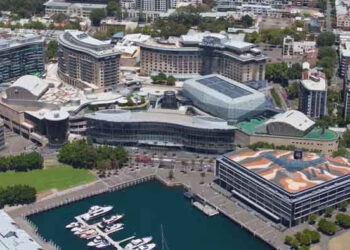Street demonstrations against imported labour first seen in Macau four years ago may have set off a chain reaction over civil and labour rights that could influence the territory’s casino market for years to come. There certainly seemed to be some evidence of such a trend last week.
In particular it could have long-term implications for the project costs and operational overheads of Macau’s casino operators and gaming investors.
During most of the four decades of Dr Stanley Ho’s casino monopoly, Macau was known for having a pliant if somewhat grumpy workforce. It’s not as pliant as it once was, even if labour laws are arguably still stacked in an employer’s favour compared to Western markets.
In May, the Macau government effectively bowed to popular pressure on labour importation and instituted a one-for-one labour policy on Macau’s current crop of casino construction projects (one local for every migrant employed). That may encourage further militancy rather than drawing a line in the sand. While the policy is not guaranteed to translate into extra project costs for the concessionaires if they negotiate firmly with their sub contractors, it hardly makes life easier for them.
And with Macau’s annual gaming revenues for 2010 likely to show a 50 percent rise year on year, unemployment down to under three percent, a big new property opening next year on Cotai and the government imposing strict quotas on imported labour, locals certainly seem to be feeling more secure about their jobs. That is feeding through in a certain amount of bolshiness among some lawmakers and some employees in their dealings with the government. Western employers are used to that kind of cycle in citizens’ attitudes, mirroring what’s going on in the wider economy. In Macau, it’s a relative novelty.
There were two examples last week. In the first case, some lawmakers complained in a committee annual report they haven’t been given enough information about the contracts between the gaming operators and the government. That may seem like small beer to outsiders. There have always been a few outspoken members of the Legislative Assembly. But for a whole committee to put their names to a complaint addressed to the local political leadership is newsworthy in a community where the Assembly has been largely focused on finding a consensus with the Chief Executive’s office.
Having said that, the lawmakers chose relatively safe ground on which to fight. Their complaint referred to what steps the government was taking to ensure diversification of the local tourism market away from hard gambling—a topic close to the heart of the central government in Beijing.
“The committee is not familiar with the details of the contracts between the Government and the operators and therefore cannot assess what was the percentage of the total investment amounts used in leisure facilities,” the lawmakers wrote in the report according to a story published first in the Portuguese-language newspaper Ponto Final and then reprinted in the English-language Macau Daily Times.
A few days later, Macau’s Civil Servants Association claimed the Macau government failed to consult it and other interested parties properly over the planned implementation of a United Nations covenant on economic and other rights.
The Association said the Macau government sent its own report on the UN document to Beijing without proper consultation and even without some basic relevant information on Macau’s labour policies.
The Association also announced a list of areas where it claimed Macau falls short of the UN International Covenant on Economic, Social and Cultural Rights. It said:
- Macau does not have laws on the right and freedom to form and join trade unions, to strike, or to engage in collective bargaining;
- under Macau’s new Labour Relations Law, employers are allowed to dismiss workers without giving reasons provided they pay compensation;
- local labour law allows employers to reduce the basic pay of employees.
Why does this matter? Well firstly, the more it’s spoken about the more discontent it could stir. Secondly, it could be a tad embarrassing for Beijing given that Macau theoretically signed up to the principles of the covenant at the same time as Portugal, before the 1999 handover. Article 40 of The Basic Law, Macau’s mini-constitution agreed between Lisbon and Beijing, says UN covenants entered into prior to 1999 are still binding.To be fair however, it was Macau’s post handover government, not the former Portuguese administration, that raised the legal employment age under the Labour Relations Law 2008 to 16 from 14.






























